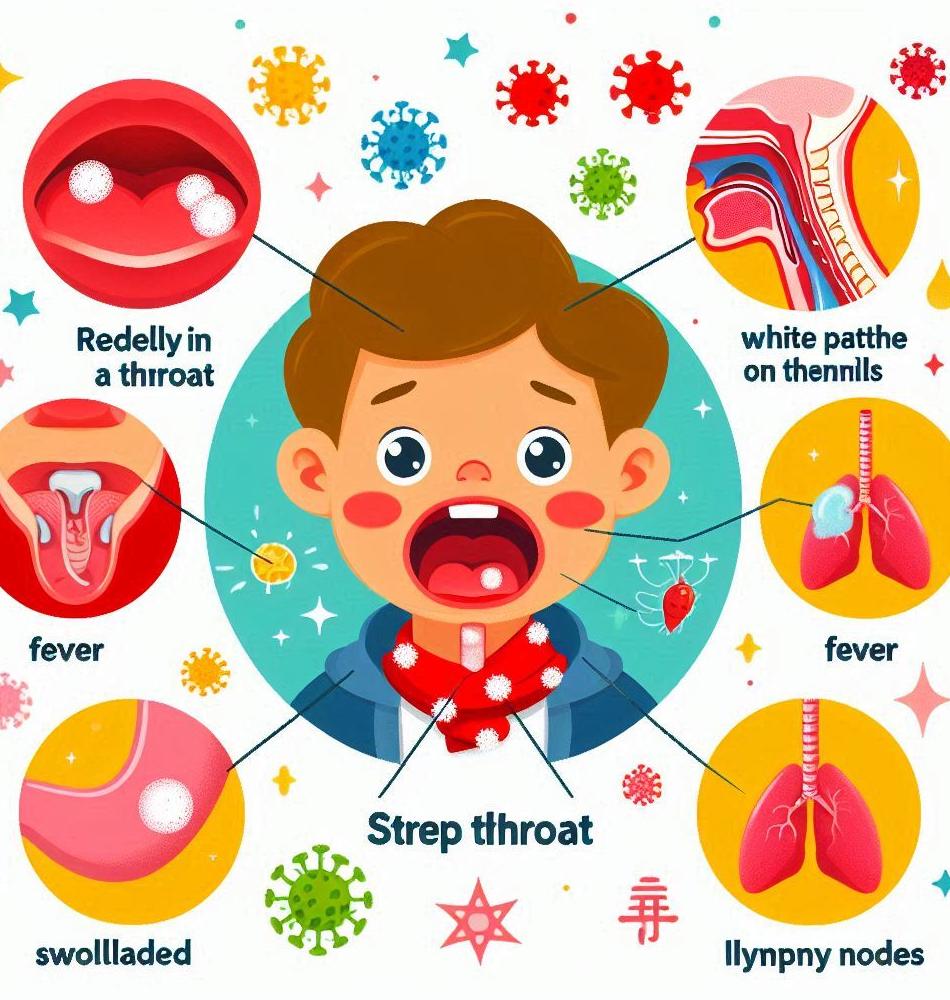Discover the signs and symptoms of strep throat, learn how to differentiate it from other conditions, and understand when to seek medical attention.
Introduction
Navigating through a sore throat can feel like wandering through a dense fog. Among the myriad of throat-related ailments, strep throat often stands out with its distinct characteristics. But how can you tell if you got strep throat? With countless infections masquerading as simple sore throats, it's crucial to distinguish strep throat from other conditions. In this article, we will explore the causes, symptoms, and treatment options for strep throat, guiding you through this common yet often misunderstood health issue.
What Is Strep Throat? 🔬
Strep throat is an infection of the throat and tonsils caused by group A Streptococcus bacteria. This condition is highly contagious and can affect anyone, although it is most commonly seen in children aged five to fifteen. While strep throat can seem like just another sore throat, it has several unique symptoms that set it apart.
Symptoms of Strep Throat 📋Identifying strep throat can be simplified by recognizing its hallmark symptoms. Here are the key signs you should look for:- Sudden and severe sore throat- Pain when swallowing- Red and swollen tonsils, often with white patches- Swollen lymph nodes in the neck- Fever exceeding 101 degrees Fahrenheit- Headache, stomachache, or rash in some cases How Is Strep Throat Diagnosed? 🩺
If you suspect that you might have strep throat, it’s essential to seek medical attention. A healthcare professional will conduct a physical examination and may perform a rapid strep test or a throat culture to confirm the presence of the bacteria. Rapid Strep Test vs. Throat Culture ✏️
- **Rapid Strep Test:** - Provides results within minutes. - Less accurate than throat culture, but a good first step. - **Throat Culture:** - Takes 24 to 48 hours for results. - More accurate in diagnosing strep throat. How Does Strep Throat Differ from Other Conditions? 🦠
Not all sore throats are created equal. Understanding how strep throat differs from other conditions can save you time, discomfort, and potential complications. Viral Sore Throat vs. Strep Throat 💧
- **Viral Sore Throat:** - Gradual onset. - Accompanied by cough, sneezing, and runny nose. - No antibiotics required.- **Strep Throat:** - Sudden onset. - No cough or cold symptoms. - Requires antibiotic treatment. Other Bacterial Infections 🤒
There are other bacterial infections that can cause sore throat, such as:- Gonorrhea- ChlamydiaThese are far less common in children but can occur in other populations. Who Is at Risk? 👫
While strep throat can affect anyone, certain demographics are at greater risk of contracting the infection. Identifying these groups can help in preventive measures. Age Factors 🌱
- **Children and Teens:** - Most commonly affected, especially those in school settings. - **Adults:** - Less frequent but still susceptible. Environmental Factors 🍂
- Crowded environments such as schools and daycare centers can facilitate the spread of strep throat.- Seasonal spikes often occur during late winter and early spring. When to Seek Medical Attention? 📅
If you experience symptoms that lead you to suspect strep throat, when should you seek medical help? Consider these guidelines:- Persistent sore throat lasting more than 48 hours- Difficulty swallowing or breathing- High fever not responding to medication- A rash accompanying the sore throat Treatment Options for Strep Throat 🎯
Fortunately, strep throat is treatable with the right medical intervention. Understanding your options can pave the way for a swift recovery. Antibiotic Treatment 💊
- **Penicillin or Amoxicillin:** - The most commonly prescribed antibiotics. - **Alternative Antibiotics:** - For those allergic to penicillin, options like cephalexin or clindamycin are available. Home Remedies for Relief 🌿
While antibiotics do the heavy lifting, some at-home remedies can ease symptoms:- Gargling warm salt water- Staying hydrated- Using throat lozenges- Resting your voice Frequently Asked Questions 📚
- What causes strep throat?- How long is strep throat contagious?- Can you get strep throat multiple times?- Is strep throat preventable?- What complications can arise from untreated strep throat? Conclusion 🌈
Understanding how to tell if you got strep throat can ensure that you take prompt action, seek medical advice, and start treatment. With its highly contagious nature, being informed about symptoms, risks, and treatment can help you preserve your health and well-being. Remember, when in doubt, consulting a healthcare professional is always the best course of action. Stay healthy and informed!

